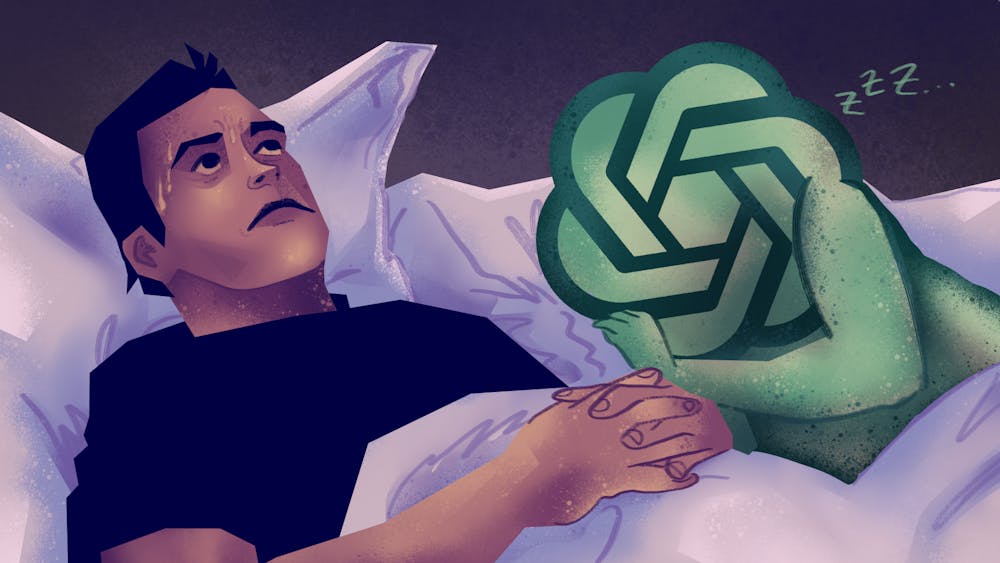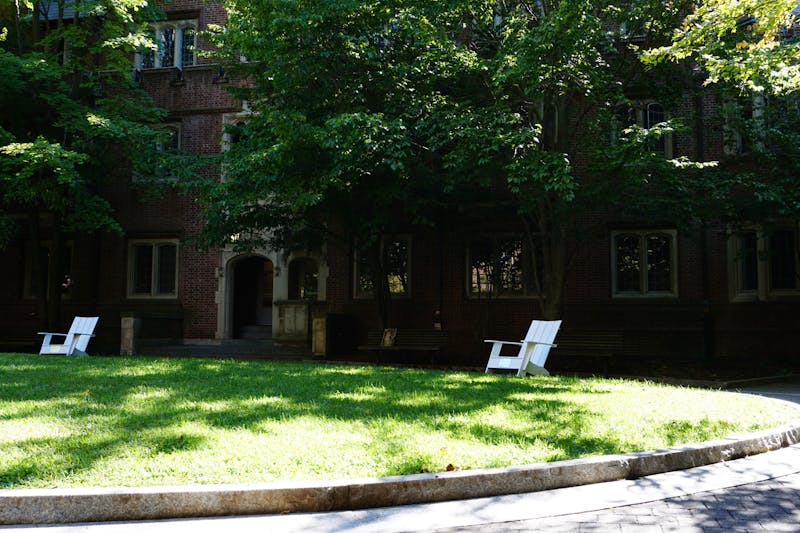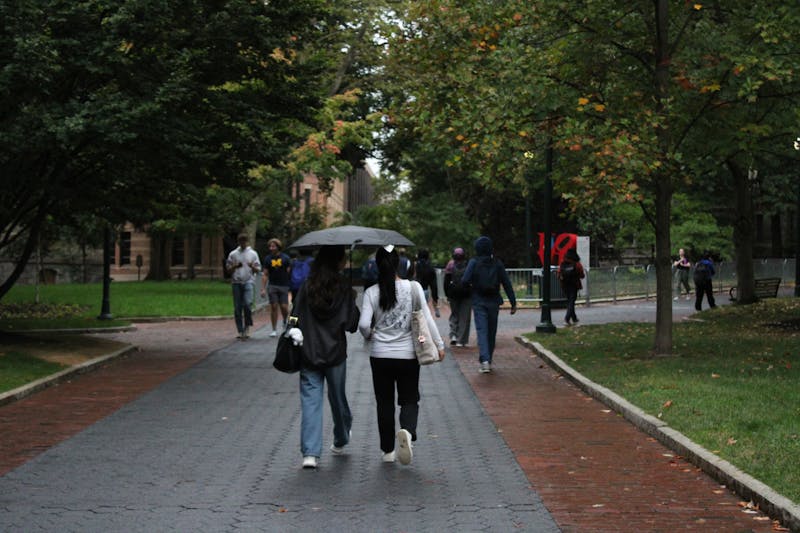
“MATH 1400: B,” reads my transcript. First-year fall, my reaction was mortification. What concepts did I fail to understand? What can I learn from this? It turns out that these are not the appropriate questions. Instead, as my peers taught me: Who do I email to complain? How do I fix it now? Treat instructors like rivals and education like a transaction. “Regrade Request” subject lines are the weapon. Copy your homework or fake ADHD for extra time!
How did we end up normalizing this nonsense? Of course, professors can be unfair, and voicing potential concerns is a privilege, but it should remain that: a privilege, not a necessity to which you feel entitled. My peers normalized defying authority, seeking leeways, and taking shortcuts. They are robbing me of the intellectual curiosity I was promised at Penn, and I want it back.
Every given semester, I am appalled at some friends — not for taking such shortcuts (hey, you do you) but for how blithely they open up about it as if it grants them social status points. And every time, I am expected to shut up and pretend the equation “Penn equals Ivy equals rigor” holds. Ask your transfer friend from a state school and they will tell you elite schools may have due dates and attendance requirements, but no one takes them seriously, because unlike the state-school student, the Penn student feels entitled to such leeways. This attitude is one definition of elitism, or at least just mine.
First-year fall, it was the perennial group project with members slacking because “someone else will do it.” (How can the brightest business students not know how to coordinate to create one slide?) First-year spring, it was someone complaining to me because they flew internationally on an average Thursday and, God forbid, the professor did not consider their cousin’s wedding a valid reason to grant partial credit for attendance. Sophomore fall, it was the arrogant friend asking for a regrade in an exam purely because “I’m paying the professor’s salary.” (Since when is college a system that needs to keep its customers happy?) The laundry list goes on: take-home quizzes turned take-together, skipped readings bragged about, and so forth. It is as if some read the Code of Academic Integrity carefully and did the exact opposite.
Hold on a second. If I seem reductionist with my animadversion against shortcut symptoms, I apologize. Let me acknowledge the disease. There are real pressures indicative of a broader institutional problem. What makes someone cheat? Pressure. Pressure from peers, family, unrealistic faculty, demanding schedules, ridiculous collaboration policies, desired jobs. Our culture is screaming at us that we are worth as much as our performance. I hear you. It is never as simple as the picture I drew. I also know most of you do not violate academic policies. We are constantly demanded, so we demand too, be it the extra point or the extension. What I deprecate is the elitist entitlement to academic success at the expense of integrity.
Being raised in the rigor of the Italian schooling system, I never even would have thought that you could get regrades and extensions, and I am confident at least a part of this is due to not coming from an elite background where getting what you want is the norm. Yet I succumbed to Penn and spent two years subservient to the consensus that Penn is hard, and I should not question those who take shortcuts.
Take the ADHD example. I know Penn needs more, not less, support for those with legitimate disabilities. Yet as someone who has friends with actual ADHD, I found it repugnant as a moral spectacle when someone recently confessed to me how they obtained a fake certificate just for testing accommodations. And I wish my story was anecdotal. Researchers at Brown University argue that, unlike most disorders where the privileged can afford more therapy and less meditations, this trend is the opposite for ADHD. The authors argue more privileged students get diagnoses “for accommodations and stimulants in service of performance enhancement rather than for clinical interventions.” How about that?
I am sick of this nonsense. What the hell happened to curiosity? What happened to intellectualism? Two years ago, I was promised a world of learning, and now, (cynically) witness a world of shortcuts that is not only unfair but also intellectually stultifying. You may treat education as spoon-feeding, but I am using mine to learn how to hold a fork to feed myself. I am open to being completely wrong. What I am not open to is living in a world where my shortcut-driven peers will become CEOs of Fortune 500 companies and “important” people. If the Wharton School is the best business school in the world, I am frightened for the world.
The simplest truth of all is that — dare I say it — if you do what you find genuinely interesting, well, there is no need for shortcuts. As writer Stephen Cope said, “We work first because we have to work. Then because we want to work. Then because we love to work. Then the work simply does us. Difficult at the beginning. Inevitable at the end.”
My work simply “does” me. And your work could “do” you too. Elitist shortcuts are so ingrained in our academic culture that we do not even question them. Today, I refuse to feel like an outcast. This is my education. Can you say the same about yours?
FRANCESCO SALAMONE is a Wharton junior studying decision processes from Palermo, Italy. His email address is frasala@wharton.upenn.edu.
The Daily Pennsylvanian is an independent, student-run newspaper. Please consider making a donation to support the coverage that shapes the University. Your generosity ensures a future of strong journalism at Penn.
Donate







